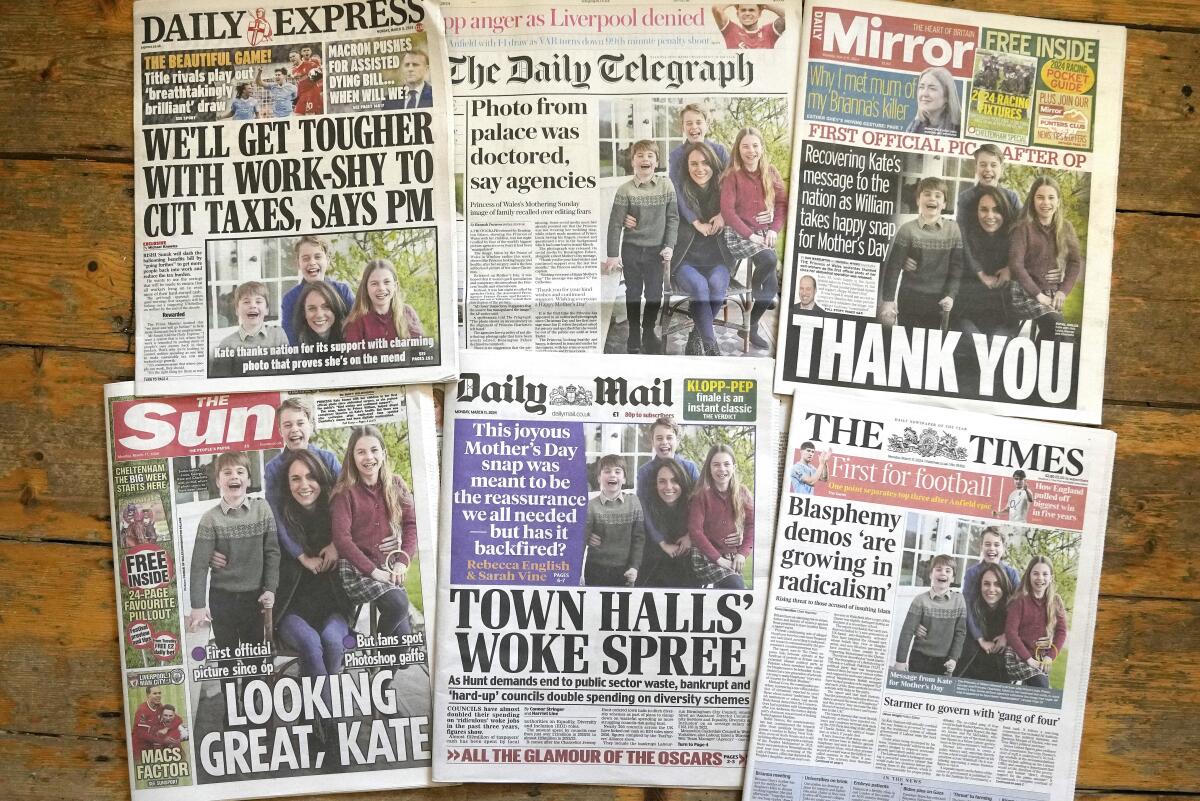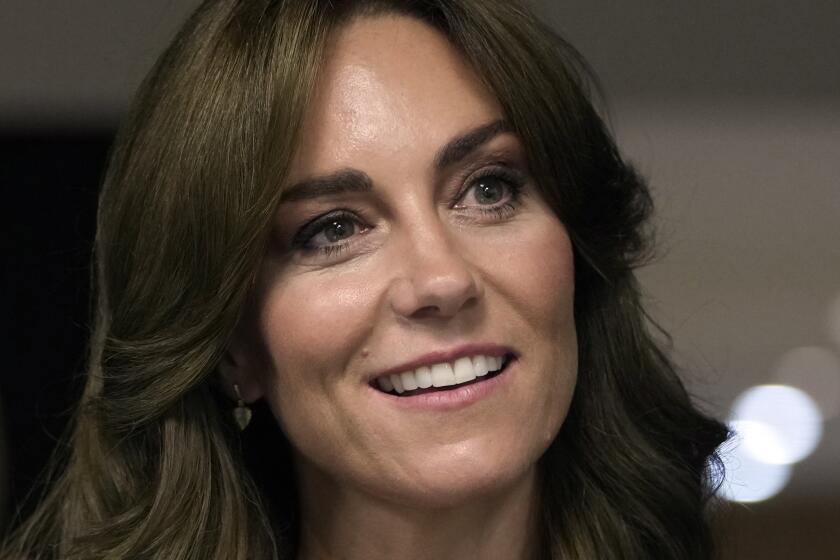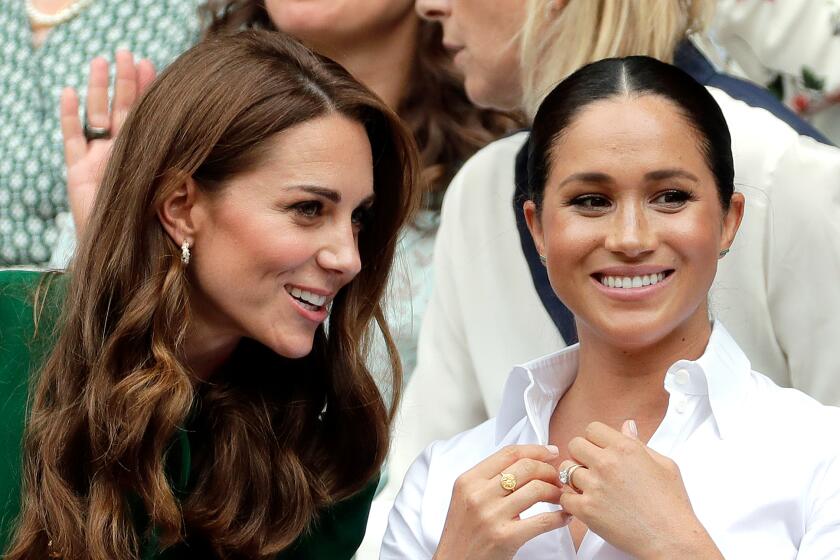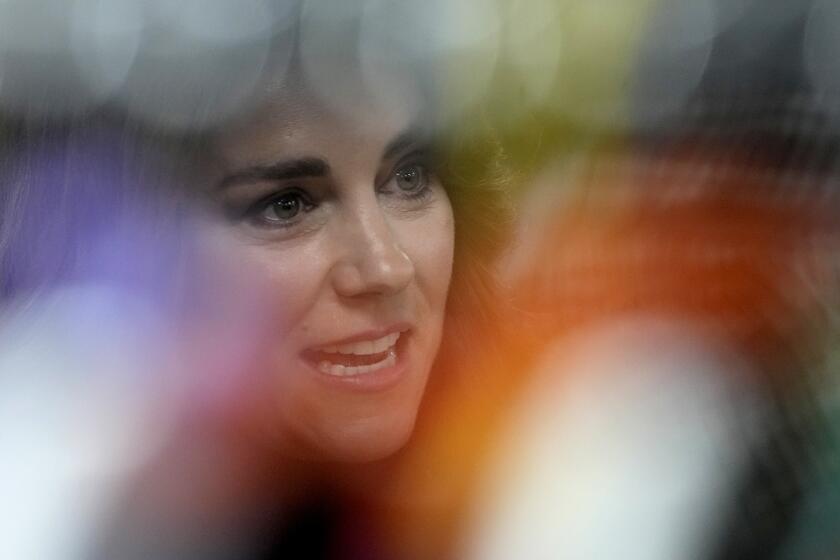Opinion: Kate Middleton messed up. But the royal family has bigger problems than one photo

The Kate Middleton photo debacle is an unforced error from a person usually seen as picture, and princess, perfect.
Yes, Catherine, Princess of Wales, apologized on social media Monday for “any confusion” over the image manipulation that led five major news agencies to recall the family photo the royals had shared hours earlier. Yet all the #WhereIsKate speculation that has gone viral recently is about more than Middleton’s “amateur” photo editing. It’s rooted in questions of privacy and shortsighted palace media strategizing.
Understanding the furor starts with its origins. On Jan. 17 came the announcement that Kate had been admitted to a London hospital a day earlier for a “planned abdominal surgery” and would likely be recuperating “until after Easter.” The princess wanted her personal medical information to remain private.
Catherine, the Princess of Wales, issued a rare apology Monday after news agencies retracted a photo of her and her children because she had digitally altered it.
The same day brought other unexpected royal health news: King Charles III would be hospitalized for a prostate procedure. The next month, Buckingham Palace announced that Charles, 75, had cancer and would not appear in public while undergoing treatment.
Although Charles was soon photographed leaving the hospital and has appeared in social media posts shared by the palace, Kate’s convalescence has been conspicuously image-free. Gradually, discussion of her absence morphed from chatter online, including among conspiracy theorists, to mainstream hypothesizing. Memes took off after Prince William, Kate’s husband, withdrew from attending a memorial service, citing personal reasons.
Some of the curiosity was driven by the fact that Kate for years has been a running, sailing, field-hockey-stick-wielding embodiment of fitness. There were humorous theories: Had the princess disappeared into a Willy Wonka scam event? Was she recovering from a Brazilian butt lift? But there was darker speculation, too, such as a Spanish media claim that Kate was in a coma. That drew royal pushback, though the Windsors rarely respond to media reports.
After a doctored image and unsatisfying apology, the palace fell into a pattern familiar from Princess Diana and Meghan Markle: making a difficult situation worse.
If recent quotes from unnamed “friends” are to be believed, William and Kate simply wanted her to be able to recover from surgery in peace, and not on anyone else’s timetable. If reports are to be believed now, the photo debacle was a human mistake made only in pursuit of royal perfection.
Sounds reasonable, but one doesn’t have to be generally skeptical of the palace’s motives to see how sending out a doctored image when seeking to quell rumors about Kate’s health is bad PR. The photo alone won’t break most people’s trust in the monarchy, but it’s not the royals’ only public relations problem.
Queen Elizabeth II famously said that she had to be seen to be believed. That’s how the British monarchy works. But the palace is operating under a labor shortage that is especially noticeable when it comes to the photogenic younger generation. Of the dozen royals regularly carrying out public duties on behalf of the crown, only William, 41, and Kate, 42, are younger than 50. Prince Harry and Meghan, Duchess of Sussex, are out of commission. The royal who logged the most public engagements last year was Princess Anne, the king’s 73-year-old sister.
With speculation about Kate Middleton’s health and whereabouts hitting a fever pitch, the Princess of Wales was spotted Monday for the first time since December.
The absence of younger “working” royals to pick up the slack is a long-term problem for the Windsors. Part of the reason William’s absence from the late February memorial service stood out was that his disgraced uncle Prince Andrew, who was dropped from public duties over his friendship with convicted sex offender Jeffrey Epstein, ended up leading the royal family entourage into the event. In a family firm, relatives remain in the picture after dismissal — even when the optics are poor.
Managing optics overall is also a challenge, partly because there is no centralized royal press operation: The teams staffing Charles and Kate are based in different palaces. That makes some sense, until different approaches, such as Charles’ and Kate’s to their health situations, conflict with, or distract from, each other.
Unless there’s more controversy to come about photos — CNN, at least, has said it is reviewing all previous handout images from the palace — sympathy for Kate’s health challenges is likely to outweigh criticism, and the Windsors will stay in their subjects’ good graces. But amid the royal health crises, the health of the monarchy overall is being tested.
Autumn Brewington, a journalist in Washington, wrote the Washington Post’s “Post Elizabeth” royal newsletter.
More to Read
A cure for the common opinion
Get thought-provoking perspectives with our weekly newsletter.
You may occasionally receive promotional content from the Los Angeles Times.












